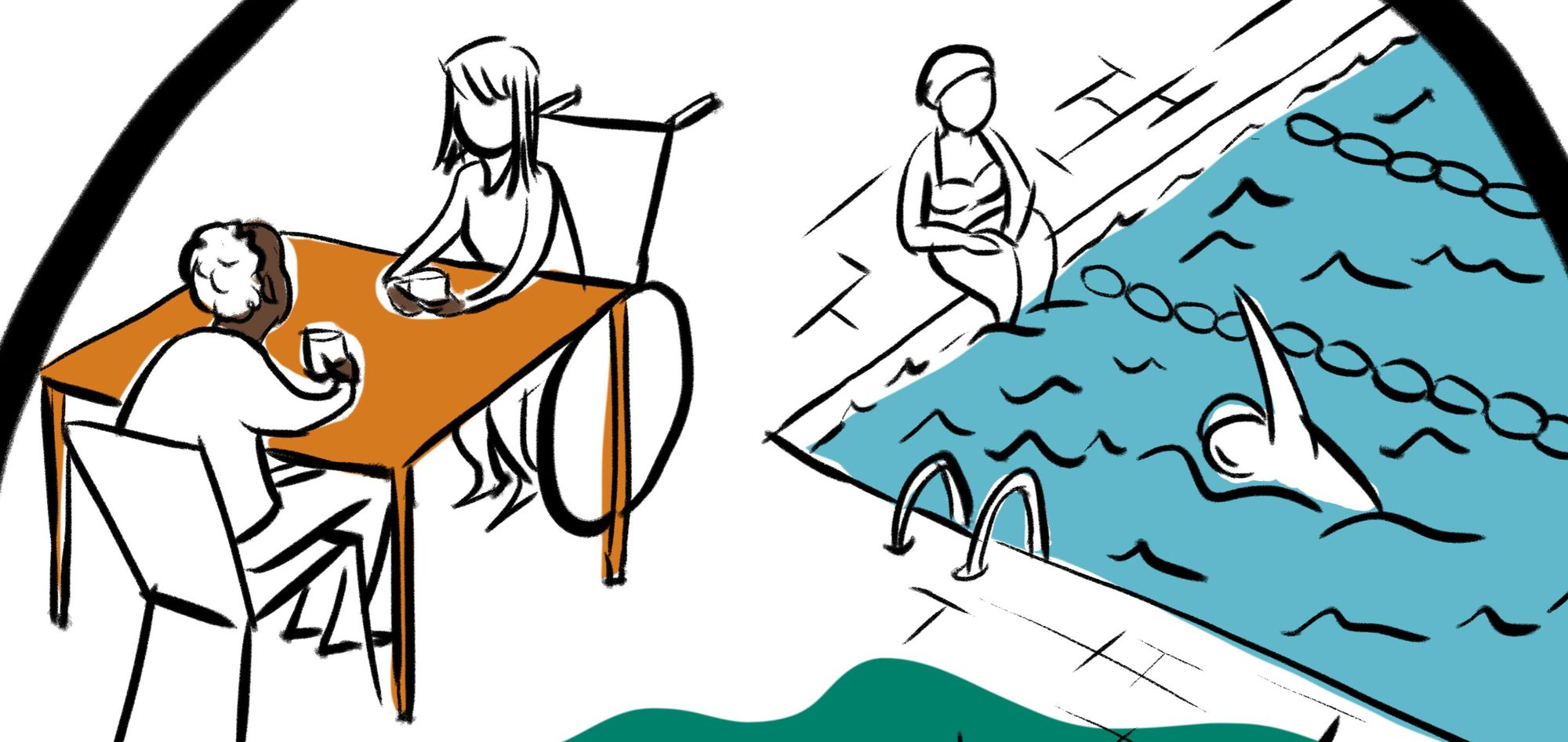Buying our care - simple right?

This blog post was authored by O, one of our workshop participants who wished to remain anonymous.
In the modern supermarket buying something for a group of people has never been so simple. Last week I had a barbeque for me and 4 friends. I went to the supermarket with my friend and we packed our trolley full of meat. We didn’t even have to encounter another human being to pay for it, we went to the self service checkout and with the help of a polite robot we scanned all our shopping and paid for it with a quick push of my bank card to the card machine. Ever so simple and easy, without even the frustration of the robot telling me to wait for assistance because the bag I brought with me was causing a weight disturbance in the bagging area. By the time we got round to eating the food I had forgotten about the journey to the shops and the shop itself was a fleeting memory that I have become so accustomed to that I take the ease of it for granted.
While buying food for others has never been so simple, buying care and buying it for a group of people is complicated as I recently learnt in a workshop run by Equal Care Co-op based in Calderdale.
For example, did you know that in the process of applying for funding for the provision of care the organisation applying for the funding must write out at least 3 documents, each containing 6,000 to 10,000 words? Moreover, these documents must be written within a 4 week time frame. What is also a concern is that the commissioners who decide who to award the funding to, do all of their decision making in secrecy! No one else gets to see these documents outlining the care provision plans and policies and they are not published anywhere that the public or independent researchers can view them. This is something the Equal Care Co-op hopes to change by offering transparency in all their care funding applications, so that these documents that are written for funding applications can be viewed by anyone who wants to look at them.
To be honest what I learnt being part of the Equal Care - Buying Our Care workshop was eye opening. Despite myself receiving care for the past 6 years from various teams out of Calderdale I had no idea how any of it was funded and what’s more I learnt that most of the applying for funding is done with minimal input from those who are actually going to be on the receiving end of the care. Another thing that Equal Care Co-op is looking to change by involving people who have been in receipt of care in workshops, such as the one I was part of. Some of our opinions and views on how to improve their proposals and the funding system as a whole are being collated.
As part of the workshop as a group we looked at the people and organisations involved in the industry and how they were related together. This showed how complex the care industry is and helped me begin to understand why the system is so broken. One member of our group who herself works in care suggested that if the care industry was held in more high esteem through a greater level of education for carers, then this might attract more people to work in the industry. Not only would carers be more knowledgeable about their job, the general public would respect the job more. Well I thought this was a great idea.
Emma, who started the Equal Care Co-op, has an attitude of being the change you want to see in the world and she and her team are keen to offer solutions to what most agree is a broken system in an industry where demand far outstrips supply. Change won’t come overnight but with organisations that are looking for new models, approaches and funding mechanisms hopefully change can come from Calderdale as the nation rebounds from a pandemic that has left our care industry held in higher esteem but suffering from chronic underpay.
A final thought for everyone reading: In an industry where human beings welfare is directly tied to the service being provided, should profiting from such a service be allowed?

